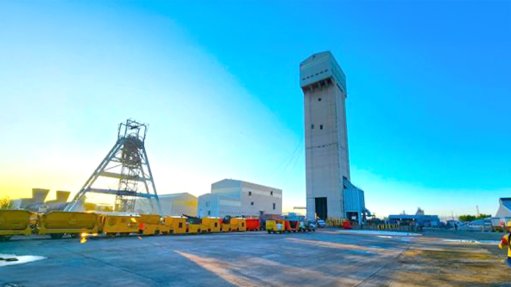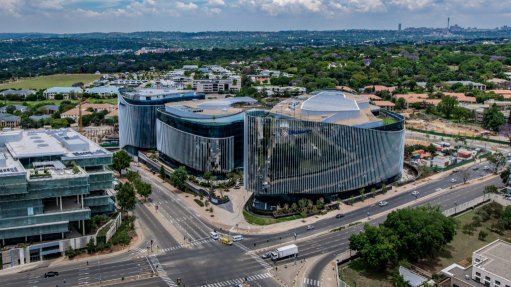Index shows South Africa has reached a standstill in efforts to curb corruption
The release of Transparency International’s 2021 Corruption Perceptions Index (CPI) reveals that South Africa, along with many other countries in the world, has reached a virtual standstill in its efforts to curb corruption, as human rights abuses and the erosion of democracy flourish, says civil society organisation Corruption Watch.
The CPI, a global indicator of public sector corruption, ranks 180 countries and territories by their perceived levels of public sector corruption on a scale of zero (highly corrupt) to 100 (very clean).
A review of South Africa’s standing on the CPI since 2012 demonstrates a stagnation on the global index over the past ten years, Corruption Watch points out.
It notes that, in 2012, South Africa scored 43, ranking 69 out of 176 countries that were assessed that year. By 2021, the country scored 44, the same as 2020, dropping one place in rank to 70 out of 180 countries.
The highest score over the past decade was 45 on the 2016 CPI, while the lowest score was 42 on the 2013 index.
“It is extremely disheartening to find ourselves, year after year, in the same position on the CPI, with marginal shifts up or down. The poor perceptions of how South Africa is faring in its efforts to truly tackle and dismantle the systems that enable corruption are perhaps to be expected, when one considers the staggering levels of corruption we have witnessed,” Corruption Watch executive director Karam Singh says.
This year’s analysis shows that 86% of countries have made little to no progress in the last decade. The CPI global average remains unchanged at 43 for the tenth year in a row, and two-thirds of countries score below 50.
South Africa sits alongside Jamaica and Tunisia on the index, and comes in at number eight on the regional table of sub-Saharan African countries.
The average score for sub-Saharan African countries is 33, one point higher than last year, demonstrating again that there have been no significant changes in addressing the high levels of corruption in the region, Corruption Watch points out.
Statements and commitments from leaders to uproot corruption at its source have not manifested in any real consequences for the perpetrators of the widespread corruption that South Africa has experienced, the organisation emphasises.
It says that, despite some positive initiatives, such as the process to develop a National Anti-Corruption Strategy (NACS), there has been a failure to implement this and related plans, which means that corruption continues unabated.
The NACS was adopted in November 2020, and prioritises measures to prevent corruption, while providing a framework and an action plan for the whole country. The more its execution is delayed, the longer we will stay in the same position, Corruption Watch says.
ZONDO COMMISSION
During the period under review, there were some positive developments in the attempt to expose and address corruption in South Africa, Corruption Watch points out.
It highlights the commission of inquiry into State capture, known as the Zondo commission, saying that this has been instrumental in uncovering the extent of corruption that has taken hold of institutions and processes over the past decade and more.
“While the naming and shaming of individuals through the commission has been revelatory, giving rise to hopes that finally there will be accountability, especially with Zondo’s recommendation to create a procurement officer’s profession and bring more reliability to the field, this may also have the converse effect of convincing people that the scale of corruption is irremediable.
“There is widespread interest from the public in this process, but also an expectation that prosecutions will begin to reel in the vast array of individuals from the private and public sectors who have been found complicit in orchestrating corruption,” the organisation says.
RECOMMENDATIONS
The 2021 CPI proposes a number of recommendations for people to demand of their governments to end the cycle of corruption, human rights violations and democratic decline.
The highest priority in the South African context is the need to uphold the right to information in government spending, indicates Corruption Watch.
It says that, at the heart of this, is mobilisation for transparency in public procurement and in relation to the Covid-19 recovery efforts, to honour the global pledge contained in the June 2021 United Nations General Assembly Special Session political declaration to include anti-corruption safeguards in public procurement.
It also says that it is important to restore and strengthen institutional checks on power.
Other recommendations focus on the need to be watchful for human rights abuses in relation to restrictions on freedoms of expression, association and assembly, as well as matters of transnational corruption.
Article Enquiry
Email Article
Save Article
Feedback
To advertise email advertising@creamermedia.co.za or click here
Comments
Announcements
What's On
Subscribe to improve your user experience...
Option 1 (equivalent of R125 a month):
Receive a weekly copy of Creamer Media's Engineering News & Mining Weekly magazine
(print copy for those in South Africa and e-magazine for those outside of South Africa)
Receive daily email newsletters
Access to full search results
Access archive of magazine back copies
Access to Projects in Progress
Access to ONE Research Report of your choice in PDF format
Option 2 (equivalent of R375 a month):
All benefits from Option 1
PLUS
Access to Creamer Media's Research Channel Africa for ALL Research Reports, in PDF format, on various industrial and mining sectors
including Electricity; Water; Energy Transition; Hydrogen; Roads, Rail and Ports; Coal; Gold; Platinum; Battery Metals; etc.
Already a subscriber?
Forgotten your password?
Receive weekly copy of Creamer Media's Engineering News & Mining Weekly magazine (print copy for those in South Africa and e-magazine for those outside of South Africa)
➕
Recieve daily email newsletters
➕
Access to full search results
➕
Access archive of magazine back copies
➕
Access to Projects in Progress
➕
Access to ONE Research Report of your choice in PDF format
RESEARCH CHANNEL AFRICA
R4500 (equivalent of R375 a month)
SUBSCRIBEAll benefits from Option 1
➕
Access to Creamer Media's Research Channel Africa for ALL Research Reports on various industrial and mining sectors, in PDF format, including on:
Electricity
➕
Water
➕
Energy Transition
➕
Hydrogen
➕
Roads, Rail and Ports
➕
Coal
➕
Gold
➕
Platinum
➕
Battery Metals
➕
etc.
Receive all benefits from Option 1 or Option 2 delivered to numerous people at your company
➕
Multiple User names and Passwords for simultaneous log-ins
➕
Intranet integration access to all in your organisation


















